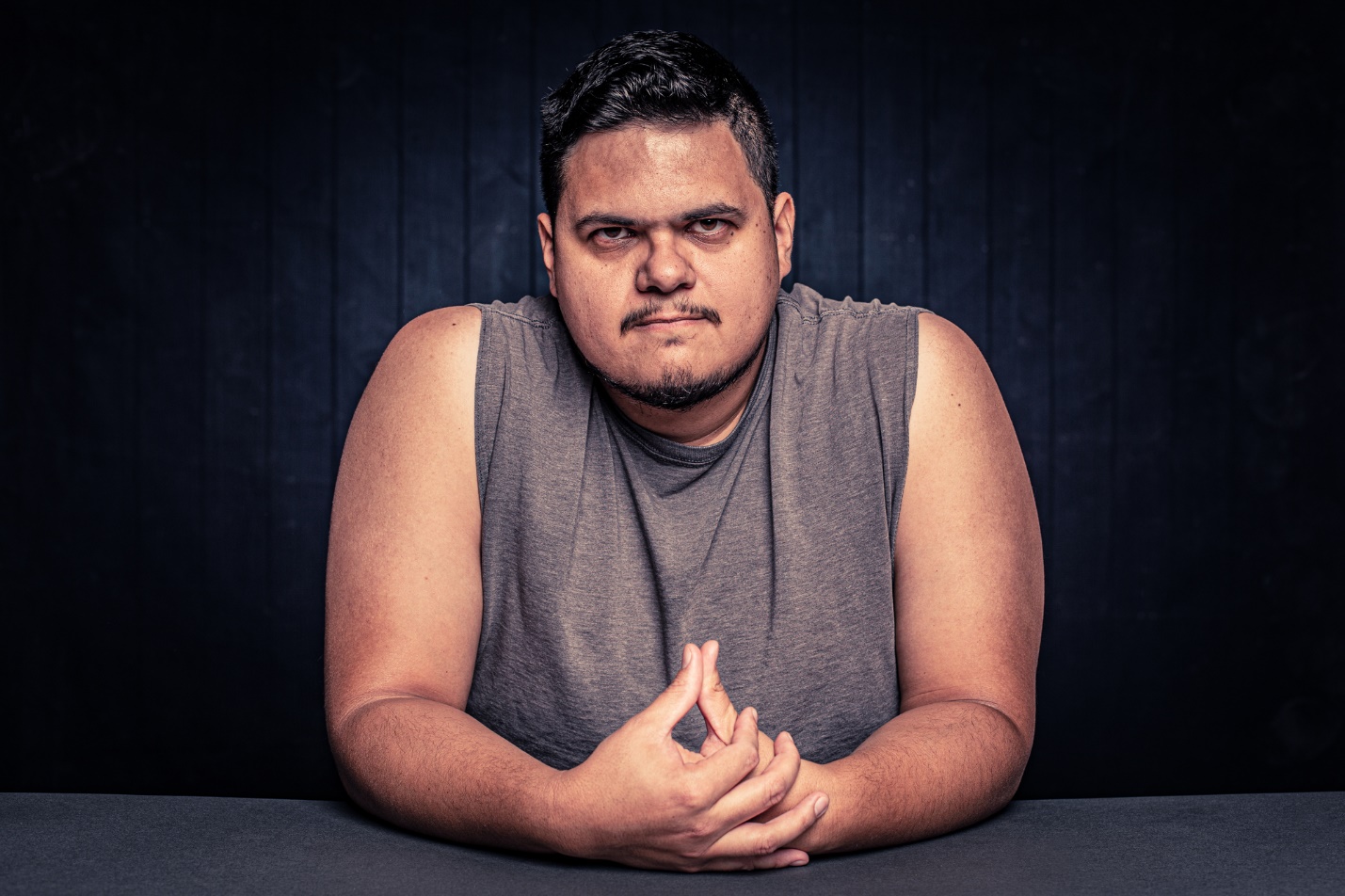BP81

My name is Isabella, and I am going to hell.
I don’t want to go to hell, ideally, but I think it is inevitable. My defense against the fear of going to hell is to believe that everyone goes to heaven because there is no hell. You know, universalism. God is a loving God who permits everyone to enter heaven. Does that include Hitler and Genghis Khan? I don’t know.
Believing that God is totally inclusive is the only way I can cope with the fear that I may not be going to heaven. I know–so much for justice and consequences in an evil world. Rapists and child abusers are free to do their thing—kind of.
Why am I not going to heaven? It’s a long story. Bear with me and I will tell you. Just know that I am not a terrible person.
I grew up in Santa Barbara, California, a half mile from the ocean, with my older brother, Samuel. My mother was a stay-at-home parent, and my father owned a construction business. We looked to the world like an average, happy family.
Appearances can be deceiving.
Yes, my mother was able to remain in the home and raise her two kids. Yes, my father was wealthy by the time he was forty-five and could afford a million dollar house. Yes, my brother and I looked like model children. We also went to the local Lutheran church and were involved in our neighborhood. My brother and I had many friends. We were popular.
But beneath the veneer of it all, something was deeply wrong in our family.
It is always hard to put a finger on dysfunction when you’re young since what a child grows up with seems normal. All I know is that as I got older, I loved spending time at several of my friends’ houses not primarily because I liked my friends but because I was drawn to their parents. I loved the presence of warm, reassuring mothers and smiling, playful fathers.
They were everything my parents were not.
There are those who say that parents always get blamed for things and that we should give them a break. After all, rarely do parents set out to purposely make their kids’ lives miserable, right? And if they do a poor job of parenting, it’s probably because they themselves had a rough start to life. All those things are probably true.

My only pushback is that every parent can turn things around for good instead of passing on an unhealthy family legacy. We all have a choice to repeat or remodel; to keep driving down the familiar eight-lane freeway or to take the exit and turn onto a new route.
My mother did not have an easy life as a child. Her mother died when she was only eleven years old. As the oldest child of seven kids, it was only natural for her to step into the role of being a mother to her siblings. She cooked, cleaned, and overall helped raise her younger brothers and sisters while her father worked sixty-hour weeks to support his large family.
Did my mom choose for her mother to die young? No. Did she want to be the mother of six kids when she was only eleven? Of course not. I have some empathy for the difficult journey she did not choose.
My frustration is that you would think my mother would have grown up to be a mature person after raising six kids even before she had her own two children. After all, she had lots of practice to grow up Not true. As an adult, my mother turned out to be emotionally young, needy, and looked to others to prop her up.
Because of her inability to grow or her choice not to grow, family history was repeated with me. Like my mother, I had to become a mother at a very young age. Unlike my mother, however, I wasn’t parenting younger siblings. I was mothering my own mother. How upside down is that.
By the time I was ten, I recognized that my mother was different than other mothers. She cried easily about things that seemed unworthy of tears. She was hurt easily by one misspoken word or crushed by a mundane life circumstance. She always turned conversations to be about her experiences and her feelings even when the original subject was me or my brother. It was always about her. Life in the house revolved around my mother.
My mother looked to me for advice as if an eight-year-old was wiser than a thirty-seven-year-old adult. True, my father was not the kind of man who was emotionally available to his wife, but why did she have to redirect her needs toward one of her children instead of calling a friend or seeing a therapist?
Maybe she never learned how to relate to adults—only younger people like her siblings. Certainly, she did not know how to communicate with women her age. My father took care of her like a father might take care of a daughter. She didn’t even know how to fill her car with gas or to make hotel reservations. She was truly a child in a woman’s body.

I didn’t realize it until many years later why I hated my mother so much, but I have learned that when roles are reversed between a parent and the child, it never goes well for the child. Just as my mother had to grow up fast (while a part of her remained very young), so I had to grow up fast for her. (I suppose that means that a part of me is very young emotionally as well.) It is not possible to be a normal child when your mother’s emotional immaturity requires you to deny the needs of the child inside of you. You have to leapfrog childhood and be an adult far too soon.
To complicate things even more, I felt ambivalent toward my father. I loved the fact that he seemed strong and self-sufficient. Unlike my mother, he never cried, and he never looked to me to help him make decisions. He went to work, supervised other people, made lots of money, and seemed like a giant of strength to me—especially compared to my childish mother.
Unfortunately, he had a big, hidden problem as well. He missed out on emotional presence from his parents growing up on the farm where he was treated more like a hired hand. I’m not certain what was going on with his mother except that she was not a very warm person; but his father clearly was a fence post. He was hard and unyielding instead of soft and embracing. My father may as well have been raised by a rock.
Sometimes children who are raised by rocks grow up to swing the pendulum in the other direction toward warmth and love. (Is this what Jesus might do in my heart?) My father was not one of them. It seemed that he became even harder than my grandfather. He worked with the intensity of a machine and, also very much like a machine, seemed to be made of steel. He was not soft or approachable. I ran away from him if I ever felt too soft.

I mistook his hardness for strength. His hardness was more about impenetrability. His heart was protected by an iron curtain and was unreachable. He had to be strong and show no weakness—never be sick or miss a day at work or show any type of emotion except for the low-grade irritability that characterized his personality and made him someone to be avoided.
Sadly, he communicated directly and indirectly that everyone around him had to be strong like him–even his daughter. That meant that I could show no emotions and have no needs. I had to be a machine just like him.
If I ever slipped up and exhibited any emotion, any sign of dependency, or made any mistake–shame and anger awaited me. Withering looks, sinister shakes of his head, and scathing words were his responses to my perceived imperfections and weaknesses. I soon learned that I had to hide my true self from him and become—steel. Yes, I became the steel girl by the time I was a teenager.
When I became more educated and aware—not until well into my thirties—I realized that my father’s strength was not the strength of an adult but that of a man who hated his own needs and emotions. He was totally divorced from his own heart, not because he was strong but because he was weak. By then I had internalized his way of doing life because it seemed so much more appealing than my mother’s emotional neediness. I wish I had been offered a third person to emulate.
By the time I was thirteen, I already hated my mother’s emotional parasitical attachment to me, and both loved and hated my father’s presence in my life. Even at that young age, I was beginning to despise emotions and neediness and so was divorced from my own heart. I had arrived at the dangerous belief that it was good to be the opposite of my mother and the same as my father.
The only flaw in it all was that by choosing to emulate my father, I also internalized a harsh voice that was quick to criticize anything that looked like weakness; anything that was not machine-like.
When I was diagnosed with a devastating, potentially life-threatening developmental disorder at thirteen, I was ill-prepared to deal with it. My mother’s response was anxiety and weeping. I was afraid I was going to die, and yet I had to comfort my mother! My father’s response was, Put on your big girl pants and be tough.
My response to myself was much the same as my father’s, namely, be strong and don’t cry.

So, there I was in middle school facing a largely unknown disease that often proved fatal and had no one to be strong for me. I had to be strong for myself. I was so alone. I swallowed an ocean of emotions and spent massive emotional capital just suppressing it.
The symptoms of the genetic disease progressed very slowly, fortunately, and so I could still walk and talk without too many problems.
By the time I was sixteen, I went to monthly medical appointments by myself because my mother was too scared to drive in LA and too nervous to attend appointments with me. She hated hospitals and medical clinics—and freeways. Truth be told, I didn’t want a girl-woman with me who would make me anxious with her anxiety and upset me with her tears. She only made matters worse.
So, I mothered myself. No, I parented myself because my father wasn’t there either.
To help me survive life alone, I intentionally invented a new self at the beginning of my junior year of high school. I didn’t give my new self a different name although I considered it. I transitioned into a new self that had nothing to do with a change in sexuality but had everything to do with my coping skills and my emotional identity. I made the conscious choice to leave behind my weaker self and reinvented myself as emotionless, totally competent, and self-sufficient to a fault. In earlier years, I pretended to be a machine. Now I became one.
I needed no one. Previously, I coexisted with both my needy self and my competent self. Now I knowingly put to death the needy one and only allowed the steel woman to exist.
This reinvented false self, as I now think of her, persisted as my emotional avatar for twenty years. Until . . . until the façade of the false self began to show cracks.
At twenty-seven, I broke up with yet another boyfriend because I could not need anyone. In high school, as I mentioned, I had decided to be totally self-sufficient thinking that such a choice was wise. Now I was beginning to see that men were not attracted to a woman who needed them for nothing. If they needed to be needed, I was the wrong woman.
On some level I had become my father, a man I tolerated but largely avoided. Who wants to be around a man or a woman who has no needs, no emotions, little warmth, and low tolerance for the neediness of others? I was Superwoman and could not live with a mere mortal man. Neither could he live with me. My heart was buried beneath my strength. So, I could never be loved—and probably never love another.

Over the next few years, I increasingly noticed that I was alone and that I would probably die alone. I had some amazing female friends, but I did not let even them see my true self that I had killed off. They were all amazed at how strong I was as I toiled away in the lengthening shadows of my scary illness that was inexorably breaking down my muscles.
They all looked up to me–just like I had looked up to my father. I didn’t shame them for their emotions and neediness. At least not outwardly. Inwardly, I looked down on everyone who needed someone else to be there for them. I couldn’t respect anyone who was anything like my mother. Weak women require men and children to take care of them and make them feel guilty if they don’t.
Strong women like me need no one.
When depression shockingly raised its ugly head in my heart, I took the impossible step to seek out a clinical psychologist. (The self-sufficient absolutely do not need help. I was admitting weakness to even entertain the thought of seeing a counselor!) I met with a male, of course, because women are weak. Men seem stronger to me even though they are unknowable and emotionally unavailable.
I soon discovered that my therapist was very different than my father or my mother. Where did this man come from? He lived in some unheard-of middle space between my two parents. He had emotions and expressed deep care for me while being strong. Unlike my mother, he didn’t need me to take care of him. Unlike my father, he was emotionally present for me and encouraged me to be vulnerable. He helped me identify the Superwoman false self I had created to be the opposite of my mother but which had also left me impenetrable, like my father.
Incredibly and despicably, I began to cry every time I went to therapy. Over a period of two years, my heart slowly softened from steel to stone to wood to flesh. Feeling emotions was alien to me. I hated myself for it. I hated my therapist because he was making me feel and—to become weak like my parasitic mother.
About this same time, one of my good friends who had left a mainstream church and began to attend a new church she referred to as “Bible-believing,” invited me to come with her to a Sunday morning service. It had been decades since I had set foot in any church, but I decided to go since my defenses were down. (I didn’t like church because my parents made me go as a child.)

I enjoyed the worship music because it was not dour and riddled with shame. I was challenged by a type of preaching I had never heard before that invited me to surrender my heart to Jesus as my Savior and personal friend. What I hated about the message was the part where the pastor said that apart from Jesus, I could do nothing in my own strength. In spite of my hate, tears rolled down my cheeks. How shameful!
You can imagine how that message sat with my self-sufficient self. My true self stirred in her tomb but was too dead to make much of a fuss beyond the silent tears.
As I walked out of the church, I rehearsed the anger I felt toward the pastor and his message and used the bellows of pride to further inflame it.
I was also angry with the Word of God and Jesus. I was especially incensed by the words from Luke 5: And Levi made him a great feast in his house, and there was a large company of tax collectors and others reclining at table with them. And the Pharisees and their scribes grumbled at his disciples, saying, “Why do you eat and drink with tax collectors and sinners?” And Jesus answered them, “Those who are well have no need of a physician, but those who are sick. I have not come to call the righteous but sinners to repentance.”
Jesus said that He came for the weak, not for the self-sufficient! He came for those who admitted that they needed help! Weak and needy did not describe me. I was strong.
Jesus did not come for me; He came for people like my pathetic mother. I could never surrender my life to a God who loved the mother I (my proud self) hated. True, there was a part of me inside that wanted to cry out for His help, but I had sent her to the grave when I was sixteen. I did not have the power to resurrect her.
I cannot cry out to Jesus for salvation because to do so means I have to become a needy child like my mother—something I can never do. After all, didn’t I tell you that I hate her and all weak people? So, if I cry out to Jesus, I become the very person I despise.
Also, I have to be strong because my father repeatedly pounded it into my psyche that to be dependent is to be shameful and to be rejected by him.
Wretched woman that I am! Who will save me from this dilemma?
Jesus wants me to need Him. I cannot need. He wants me to admit that I cannot do life on my own. I must be Superwoman. He commands me to honor my father and mother. I cannot honor people I despise. He tells me that when I walk with Him, even when I am weak then I am strong. I can never be weak. He invites me to trust that He loves me and will never leave me even when I sin. I cannot trust anyone to love me unconditionally. I must always be perfect and prove myself every day. It all depends on my ability and certainly not on someone else’s love.
So, you see, I am going to hell because my false self (prideful self) can never tolerate the neediness or weakness one must have to repentantly receive Christ. To do that, I would have to resurrect the true self within me, the despicable child who wants someone to take care of her. But how severe is the mere thought of that dependency to my soul, like coarse sandpaper over rough wood!
What am I to do? I cannot come to Christ. I will never be able to receive His salvation. So, I am lost.
**

Isabella’s story is not fictional. It is the true account of one person’s journey through life. There are millions of Isabellas (and Isaacs) in this world. You probably work with one or go to church with one. Maybe she is your sister-in-law or even your own mother.
My main point in sharing this story is for believers in Jesus to be compassionate and patient with those who do not immediately surrender to Christ but who dawdle and resist and even appear angry at the message of faith in Jesus. There may be massive, invisible boulders standing between them and faith in God. Or maybe towering fortresses as Scripture mentions.
As we considered in a previous blogpost, never forget the words of 2 Corinthians 10:3-5 as you live around others: For though we walk in the flesh, we are not waging war according to the flesh. For the weapons of our warfare are not of the flesh but have divine power to destroy strongholds. We destroy arguments and every lofty opinion raised against the knowledge of God, and take every thought captive to obey Christ, being ready to punish every disobedience, when your obedience is complete.
Remember as you journey beside non-believers (and even many believers) that the attaining of intimacy is always opposed by strongholds, arguments, towering fortresses, and untrue thoughts that war to separate you and others from God. When you meet someone like Isabella, you may have no idea of the tumult that is going on inside her heart because if she is enslaved to the belief that she must strong and self-sufficient, she will not be able to speak of the neediness and pain inside her soul.
So, be intentional about feeling around the rim of the souls of those around you. Appeal not only to their cognitions with apologetical arguments and theological truth. Be sure to also listen to their hearts and hear the sounds of battle within. With God’s love, prayer, patient presence, and love, make yourself safe for them.
One day, by your persistent unconditional love and compassionate presence fueled by the power of the Holy Spirit, Jesus may open their ears and they will surrender to His love. They will run to Him because you fought the war in the trenches with them instead of insisting that they take the hill immediately. You helped them identify and break down the towering fortresses that were raised up against their knowledge of God.
Yes, when it comes to people, there are green apples and red apples. Some are ripe for salvation at this very moment and others are nowhere near being ready for the harvest. However, many green apples will become red as you walk beside them demonstrating the faithfulness of Jesus’ love and the life-transforming power of His truth.
Listen well. Be patient. Weep and pray. Love those whose hearts are full of psychological, spiritual, and relational roadblocks. Show them the heart of Jesus. He may yet grant them repentance. What a day of rejoicing that will be!

And the Lord’s servant must not be quarrelsome but kind to everyone, able to teach, patiently enduring evil, correcting his opponents with gentleness. God may perhaps grant them repentance leading to a knowledge of the truth ~ 2 Timothy 2:24
